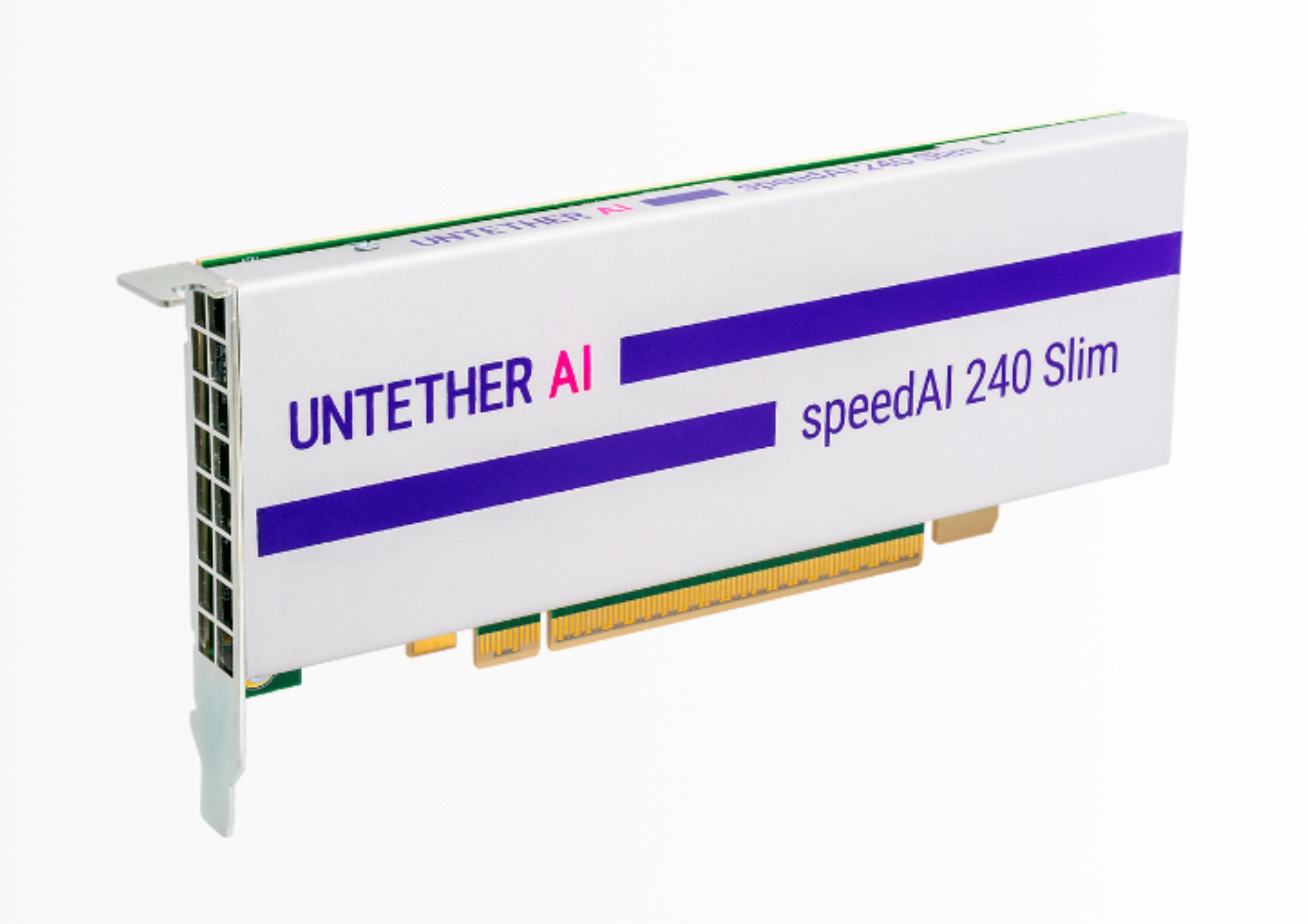Untether Unveils 240 Slim: Energy-Efficient AI Chip for Autonomous Vehicles and Edge Computing

Image Source: Untether
In a significant stride towards advancing edge computing, San Francisco-based startup Untether has introduced its latest artificial intelligence processor, the 240 Slim. Designed specifically for energy-efficient applications in autonomous vehicles, agricultural machinery, and other edge scenarios, the 240 Slim promises to redefine the landscape of AI hardware.
[Read More: Arm Plans to Launch AI Chips by 2025]
Revolutionizing Edge AI with the 240 Slim
Unlike traditional AI chips from industry leaders such as Nvidia and AMD, which are optimized for large-scale data center operations, Untether’s 240 Slim focuses on inference—the application of pre-trained AI models. This specialization allows the chip to deliver high performance while maintaining minimal power consumption, making it ideal for deployment in environments where energy efficiency is paramount.
[Read More: AI Chip Wars: Nvidia’s Rivals Gear Up for a Slice of the Market]
A Growing Market for Inference-Focused Technology
The demand for inference-centric AI chips is rapidly increasing as artificial intelligence becomes more integrated into everyday technologies. Bob Beachler, Untether’s Vice President of Product, projects that the market for inference chips will surge to $102 billion by 2027, significantly outpacing the training segment. This anticipated growth underscores the pivotal role that efficient inference hardware will play in the future of AI applications.
[Read More: Exponential Baby! Understanding AI's Role in Technology's Rapid Evolution]
Open-Source Advantage with RISC-V Architecture
Untether’s 240 Slim is built on the open-source RISC-V architecture, setting it apart from competitors that rely on proprietary technologies like those from Arm Holdings. This open-source foundation not only enhances flexibility and customization but also positions Untether as a formidable challenger in the AI chip market. Early evaluations conducted by the nonprofit organization MLCommons have demonstrated the 240 Slim’s robust performance, validating Untether’s innovative approach.
[Read More: The Battle for AI's Future: Open vs. Closed Source]
Strategic Partnerships Driving Adoption
Untether has already secured key partnerships in the automotive sector, with Mercedes-Benz committing to integrate the 240 Slim chips into its next-generation autonomous vehicles. This collaboration highlights the chip’s potential to deliver cutting-edge performance with reduced energy requirements, fostering advancements in autonomous technology and beyond.
[Read More: Tesla Unveils Cybercab & Robovan: Musk's Bold Bet on Autonomous Robotaxis by 2026]
Competitive Edge in the AI Hardware Arena
By focusing on inference rather than training, Untether’s 240 Slim offers a unique value proposition. While companies like Nvidia and AMD dominate the data center chip market, Untether targets the burgeoning edge computing segment. This strategic differentiation allows Untether to address specific market needs, offering solutions that are both powerful and energy-efficient.
[Read More: AMD Unveils MI325X AI Chip, Plans MI350 Series to Compete with Nvidia's AI Dominance]
Validated Performance and Future Prospects
The 240 Slim has undergone rigorous testing, with results from MLCommons affirming its effectiveness for intended applications. These promising performance metrics, combined with its energy-efficient design, position Untether’s chip as a viable option for a variety of edge computing scenarios. As the demand for intelligent, low-power AI solutions continues to rise, Untether is well-positioned to lead the charge in this evolving market.
We are your source for AI news and insights. Join us as we explore the future of AI and its impact on humanity, offering thoughtful analysis and fostering community dialogue.









